Search Results
Showing results 1 to 12 of 12
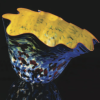
Macchia Madness
Source Institutions
In this activity, learners explore the history of making objects from glass and artistry of Dale Chihuly.

Rainbow Glasses
Source Institutions
In this activity, learners explore light, color and rainbows by making their own rainbow glasses.
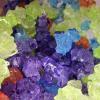
Edible Glass
Source Institutions
In this activity, learners discover the principles of edible glass by making a supersaturated sugar solution.
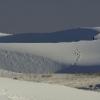
Sandy Samples
Source Institutions
In this collecting/comparing activity, learners work with samples of sand from different places like a lakefront, river, or ocean beach.
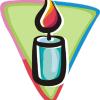
Burning Issues
Source Institutions
Learners use a candle to investigate the products of combustion. When a glass rod is held over a lit candle, the candle flame deposits carbon on the rod.
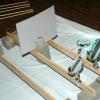
Glass and Mirrors: An Inside Look at Telescopes
Source Institutions
This hands-on astronomy activity allows you to create a “cutaway” telescope to clearly show how reflector and refractor telescopes work.

Build a Giant Puzzle!
Source Institutions
In this activity, learners assemble large cubes to make nano-related images. Learners discover how different objects are related to nanoscience and nanotechnology.

Cold Metal
Source Institutions
In this activity, learners discover that our hands are not reliable thermometers.
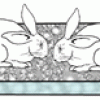
Acid Rain Eats Stone!
Source Institutions
This display shows the dangers of acid rain on buildings and other structures as two concrete bunny rabbits are disintegrated by sulfuric acid. Learners scrape chalk onto the concrete bunnies.

Critical Angle
Source Institutions
In this optics activity, learners examine how a transparent material such as glass or water can actually reflect light better than any mirror.

Space Stations: Sponge Spool Spine
Source Institutions
In this activity, learners simulate what happens to a human spine in space by making Sponge Spool Spines (alternating sponge pieces and spools threaded on a pipe cleaner).
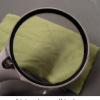
Stuck on You: Adhesion
Source Institutions
Learners explore water adhesion and learn about why water molecules are more strongly attracted to some substances than others.
